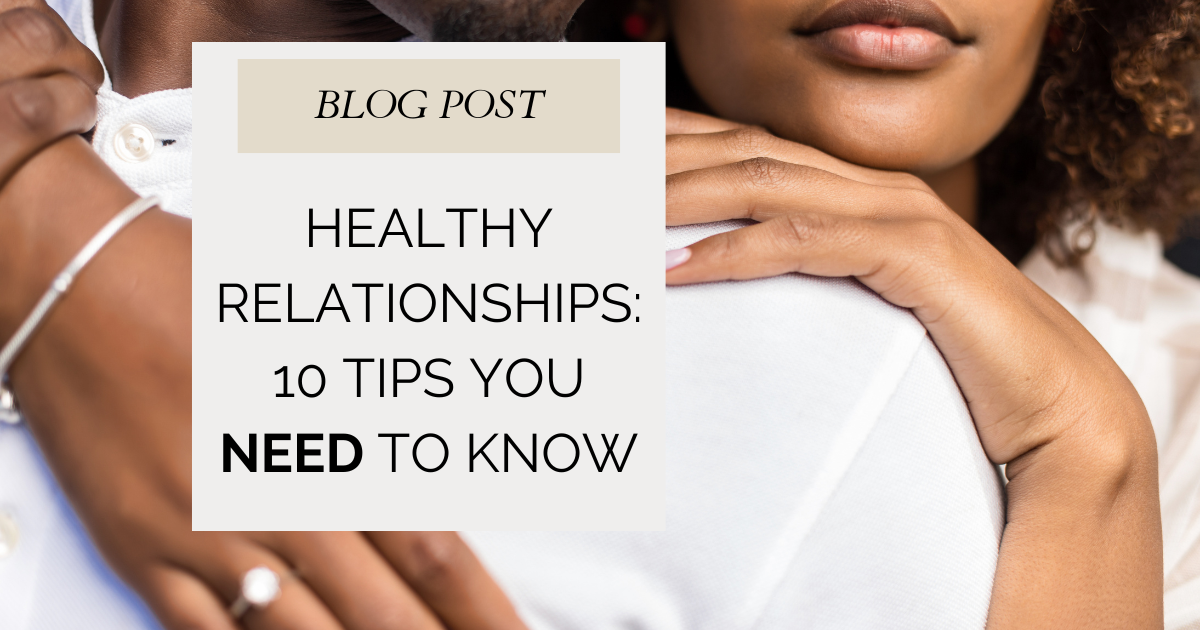10 Surprising Ways to Cultivate Healthy Relationships in 2024

As we start a new year, it’s a great time to think about the connections in our lives. Whether you want to make your relationship stronger, reconnect with friends, or feel part of a community, building healthy relationships is key. Studies show that how well we connect with others affects our mental, emotional, and physical health.
So, what’s the secret to keeping these connections strong in the future? This article will share 10 surprising tips to help you build better relationships in 2024 and beyond. Experts in relationships will guide you on how to create deeper, more real connections. From showing thanks to accepting differences, these tips will help you on your journey.

Key Takeaways
- Cultivate healthy relationships through acts of gratitude and appreciation
- Prioritize quality time together to deepen connections
- Embrace differences and respect personal boundaries
- Foster open and honest communication in all relationships
- Maintain outside interests and connections to enrich your life
Pay Compliments and Express Gratitude
Building strong relationships takes more than just being together. Giving genuine compliments and saying thanks deeply affects how close we feel to each other. Experts say these acts of kindness make us feel important and loved. This is key for keeping relationships strong over time.
The Importance of Showing Appreciation
Showing thanks is crucial for a healthy relationship. The author says it’s often overlooked, especially in long-term relationships. Not saying thanks can lead to more fights and feeling distant. But, saying thanks and noticing the good in your partner can make your bond stronger.
There are two main types of appreciation: time-based and focus-based. Time-based is about thanking your partner for their time and effort. Focus-based is about really listening and acknowledging what they say and feel.
- Pay attention when your partner speaks and thank them for their contributions.
- Compliment your partner’s positive qualities and express your gratitude for their support.
- Regularly express love and appreciation for your partner to maintain a healthy relationship.
“Gratitude can make a person happier, and couples who express gratitude for their partner regularly feel more positively towards them.” – Harvard Health
Being thankful releases oxytocin, the “love hormone,” which makes our bond stronger. The Gottman Institute suggests having twenty positive comments for every one negative to stay healthy. Couples who often thank and compliment each other are happier than those who don’t.
Showing love and gratitude every day can make your relationship better. Remember, specific compliments mean more to your partner. If someone stops responding well to compliments, they might get fewer compliments over time.
Prioritize Quality Time Together
In today’s fast-paced world, it’s easy to get caught up in endless digital distractions. But research shows that spending quality time with our loved ones is crucial. It’s key for nurturing relationships and keeping emotional connections strong.
The love language of quality time is vital for growing relationships. It means giving each other your full attention without distractions. With technology, we’re spending less quality time together. But, active listening is key to making these moments special. It shows empathy and makes partners feel understood.
- Making small, daily connections with your partner is essential for quality time relationships.
- Planning quality time moments can help strengthen the bond between partners.
- Quality time partners view time together as a valuable gift.
- Inviting your partner to accompany daily errands can provide opportunities for quality time.
Studies show that good time management leads to more productivity, energy, and less stress. It also means more free time and positive interactions with others. Plus, spending more time with your partner can make you happier and more fulfilled.
“Quality time partners view time together as a valuable gift.”
If you’re busy and can’t spend much time with your partner, focus on making the time you have together special. Choose activities that are positive and memorable. By doing this, you can strengthen your bond, reduce stress, and keep a deep emotional connection with your loved one.

Embrace Differences and Respect Boundaries
Healthy relationships do well when partners accept each other’s unique qualities and views. It’s important to see your strengths together and respect each other’s space. Learning to disagree in a good way is key.
Experts say being able to solve problems together is key to a strong bond. What makes a boundary can change based on culture, personality, and the situation. Knowing how to set and talk about boundaries is important.
- Assertiveness means sharing feelings openly and with respect.
- Healthy boundaries include saying no, being honest with feelings, solving problems directly, and being clear about what you expect.
- Emotional boundaries affect how open you are to others.
- Taking care of yourself helps keep boundaries strong and prevents burnout.
“Setting boundaries in relationships promotes mutual respect and fosters feelings of closeness.”
Changing or removing boundaries can make a relationship closer and more respectful. But it can be hard. Sometimes, you might need to talk to a therapist. By knowing what you’re okay with and sharing your boundaries, you can build strong, lasting relationships. These relationships are based on accepting differences, setting boundaries, mutual respect, and healthy conflict resolution.

Foster Open and Honest Communication
Good communication is key to strong relationships. It’s vital whether you’re in a romantic partnership, a close family bond, or a dear friendship. Open communication, honest expression, and active listening help build trust and deepen the emotional connection between people.
Couples who talk openly and honestly can better understand and respect each other’s needs and limits. This leads to better conflict resolution. By sharing your thoughts, feelings, and desires, you get a clearer understanding and have constructive talks. Trust, closeness, and safety in relationships come from being open, honest, and vulnerable in how you communicate.
- Showing empathy and compassion for each other strengthens the emotional bond between couples.
- Respecting each other’s boundaries is key to avoiding conflicts and ensuring mutual understanding in relationships.
- Good communication helps you support each other during hard times, making your bond stronger.
Keeping communication open and being assertive (not aggressive) are important for healthy relationships. Make time for each other, listen more than you talk, and avoid making assumptions, blame, or criticism to improve communication.
“Communication is the glue that holds a relationship together. Without it, partners grow apart and the relationship crumbles.” – Dr. John Gottman, renowned relationship expert
Being aware of body language, using “I” statements, and staying curious about your partner can improve communication and understanding. Effective communication can make the bond between partners stronger, raising trust over time.
Open and honest communication builds emotional closeness. This closeness makes partners feel truly understood and known. It strengthens the bond between people and creates a safe space for a loving relationship to grow.
healthy relationships
Building and keeping healthy relationships is key to our happiness and well-being. Experts say key traits include support, respect, balance, and authenticity.
A strong bond is built on mutual support. Both people should help each other chase their dreams. This teamwork is key to a strong connection.
Respect is crucial too. It means respecting each other’s space and views. Feeling safe and trusted helps partners be themselves.
- Having a balanced relationship means sharing duties and decisions. This prevents feeling left out or not valued.
- Being authentic means being true to oneself. It’s about sharing feelings and needs openly.
No relationship is perfect, but focusing on these traits helps build strong bonds. By valuing mutual support, respect, balance, and authenticity, you can create a healthy relationship.
“Healthy relationships are built on empathy, kindness, reliability, commitment, mutual respect for boundaries, and teamwork.” – Natacha Duke, Psychotherapist
Maintain Outside Interests and Connections
Building a healthy relationship means keeping up outside interests and connections. It’s key to support each other but also keep your own identity and balance. This helps make your bond stronger.
Doing hobbies, being with family and friends, and following your passions keeps you from burning out. It stops you from depending too much on your partner. This way, you don’t feel trapped and bring a new energy to your relationship.
- Make time for activities that energize and fulfill you as an individual.
- Cultivate a strong support network of family and friends outside your relationship.
- Avoid neglecting your personal interests and social connections when you enter a new relationship.
Keeping outside relationships and activities helps you preserve your individual identity, work-life balance, and prevent burnout. These things are key for a happy and healthy relationship.
“The best relationships don’t make you lose yourself; they make you find yourself.” – Unknown
A healthy relationship isn’t about being too dependent. It’s about two people who support each other and also be independent. By maintaining outside relationships, you make your bond stronger and enjoy a fulfilling partnership.
Conclusion
In this article, we looked at 10 surprising ways to make healthy relationships better in 2024. We talked about giving sincere compliments and saying thanks. We also mentioned spending quality time together, accepting each other’s differences, and talking openly.
Experts in relationships shared tips to help readers improve their connections. These tips can help you make your romantic, family, or friend relationships stronger. They offer a guide on cultivating healthy relationships, strengthening bonds, and improving communication.
Starting on a path to better relationships means being present and understanding others. By using these strategies for summary of key strategies, you can make your social connections stronger. This can greatly improve your well-being and life quality.



